As a Post-Graduate Certificate student with years of experience in the media space, this program was transformative. It refined my skills, introduced me to innovative techniques, and elevated my craft in ways I hadn’t anticipated.
The practicum opportunities and access to high-quality equipment like professional-grade cameras and vlogging kits made learning seamless and practical. The dedicated instructors were exceptional, offering guidance that truly enhanced my experience.
This program has been incredibly beneficial, equipping me with tools and insights to excel further in my career. I highly recommend it to anyone looking to advance their expertise.
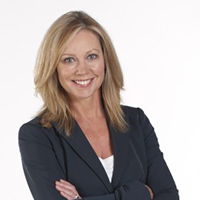 “The practical training I received opened the door for me and meant I was ready when luck and chance brought opportunity my way.”
“The practical training I received opened the door for me and meant I was ready when luck and chance brought opportunity my way.”
Norma Lee recently retired from CBC. We look forward to seeing what new adventures await her.
Norma Lee MacLeod is a household name in the Maritimes as a broadcast journalist with an illustrious career at the CBC spanning three decades. Many Islanders still remember her earliest work, announcing the weather on CBC Charlottetown’s evening news. Since then she has worked as host, producer, and reporter for CBC News Nova Scotia and host of the national CBC Newsworld programs CBC Morning and Health Matters, as well as Maritime Magazine on CBC Radio One. She is currently the producer and host of the popular CBC Radio One phone-in show, Maritime Noon.
Norma Lee was the first winner of Holland College’s Hartwell Daley Journalism Award, and has since been recognized regionally with two Atlantic Journalism Awards and nationally with two Gemini Award nominations, one for best news anchor and one for best host/interviewer for Health Matters. She was honoured by Holland College Foundation as one of the recipients of its seventh annual Distinguished Alumni Awards.
Norma Lee frequently volunteers her time and talents for fundraising and outreach efforts in her community. In addition, she has excelled in martial arts, earning a third-degree black belt in karate. She competes regularly and is a frequent medalist in her sport.
 I had always dreamed of being a college graduate. I just didn’t think I’d be doing it 31 years after I left high school. I guess living life got in the way for a bit.
I had always dreamed of being a college graduate. I just didn’t think I’d be doing it 31 years after I left high school. I guess living life got in the way for a bit.
After marriage and children, I kind of lucked into a job as a reporter at the Miramichi Leader when I turned 33. A month on the job and I was the first reporter on the ground covering the Burnt Church native fishing dispute. During my time with the paper, I covered a variety of stories and issues and met a lot of interesting people along the way. But my favourite thing to cover was court. I sat through a lot of interesting trials and sentence hearings, including murders, assaults, thefts and more. It was a beat that was never boring.
The longest case I covered lasted three years from start to finish including a five-month trial that led to the conviction of four men for theft and breach of trust. One of the men was a provincial court judge.
I won newspaper awards for my work, became an associate editor then editor. Then I went back to reporting for a daily paper and after a year my position was cut.
Now what? A career change? A move from Atlantic Canada?
I always wanted that piece of paper that said I was a journalist even though I had done the job of one for 14 years. So with the help of my first editor and now journalism instructor Rick McLean, I decided to make it happen.
After undertaking a prior learning assessment and recognition process I was accepted into the second year of the Journalism program at Holland College.
Walking into a room full of students in September 2014, most of them younger than my own children, was interesting but fun. I took the skills I knew and added to them. I learned the fine points of shooting and editing video, writing a script and doing a voice over.
Those skills helped me during an internship with CBC PEI, an internship that led to being hired to write for their online platform. Social media is a big part of engaging readers, and the skills I developed in the program helped with writing short and catchy paragraphs to draw the reader in.
It may sound strange, but obtaining this diploma makes me feel as if I truly am a journalist. And while it’s not the piece of paper that makes you a good reporter, it seems to add a bit of credibility to what you are doing on a daily basis.
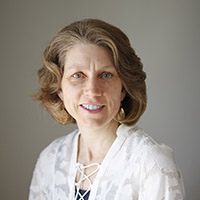 When I decided to go to Journalism school it was because I was curious. I really enjoyed learning new things. I always had my head in a newspaper, news magazine, or one of those free arts and culture tabloids. CBC Radio was constantly on.
When I decided to go to Journalism school it was because I was curious. I really enjoyed learning new things. I always had my head in a newspaper, news magazine, or one of those free arts and culture tabloids. CBC Radio was constantly on.
I didn’t know if I would make a good journalist, but I figured it would be a perfect excuse to be nosey. I’m still nosey.
The Journalism program at Holland College demands students think and work on their own. The instructors held my hand, that’s for sure, but it was up to me to make things happen – to succeed, or not.
What you get out of this program depends on what you put in. That’s what the real world is like, too. Employers want people who can work on their own, who do things without being asked or told, who are thinking ahead of the game – employees who don’t have to have their hands held.
An important thing I learned in the Holland College Journalism program was how to write for the masses. It’s important to write at a level that’s easily understood by the average Canadian, which doesn’t mean you’re "dumbing down" your work. It just makes it clearer. If you don’t grab your audience right away, it’s game over. That’s the case for newspaper writing, writing for radio or the web, writing news releases or Tweets. It’s the same for writing speeches or talking points for a cabinet minister or helping prepare someone for their very first interview with a reporter. One thought per sentence.
Spelling names correctly is also a must. You’ll never regret seeing the words “you’re fired” scribbled at the top of your copy by your Journalism instructor after you spell someone’s name wrong in a story. And you will spell a name wrong – you just won’t spell it wrong a second time.
Years after walking through the doors of Holland College, my passion for learning is still alive. Media relations is a big part of my current job. When a reporter asks a question I have not been asked before, I need to do some digging, talk to people in the department, find out the information and pass it on in an understandable way. I learn new and interesting things all the time.
And I get a rush from this line of work, a rush similar to the rush I used to feel covering a murder case or a fishing dispute. It keeps me running after the same kind of information I ran after when I was the reporter writing the stories.
Newsrooms are great learning environments; they can also be super tough. Being a reporter is a great way to get to know a community or a province. I highly encourage anyone thinking about doing communications work to spend at least a few years in a newsroom. That experience will be highly valuable to a potential employer. And don’t just think of communications work as “the dark side”. There are windows in most communications offices!
 Holland College’s Journalism and Communications program has been invaluable to me, both academically and personally. Throughout the two years of the program, I’ve learned many key reporting skills and gained confidence to step out of my comfort zone as a reporter. I was also able to attain the academic internship of my dreams – working for The Globe and Mail, something I know I could not have achieved on my own.
Holland College’s Journalism and Communications program has been invaluable to me, both academically and personally. Throughout the two years of the program, I’ve learned many key reporting skills and gained confidence to step out of my comfort zone as a reporter. I was also able to attain the academic internship of my dreams – working for The Globe and Mail, something I know I could not have achieved on my own.
The program offers courses like storytelling, interviewing, news writing, broadcast storytelling and social media, which are very helpful to help you understand the nature of the industry, and also help prepare the required skillset for students to be ready to go out and do their stories their way.
The instructors are patient, understanding, approachable, and highly skilled. They are always there and offer help when students struggle throughout the learning and working experience.
I would highly recommend this program. It is fantastic and it has changed my journalism career for the better.
My time in the Holland College Journalism and Communications program can be summarized in one word: Extensive. As the journalism industry is rapidly expanding and changing, the instructors have done an incredible job of changing the curriculum to adapt.
As a sports broadcaster, I found all the tools I needed early in my career at Holland College. Working in part with the Hurricanes Athletic Department and teams filled my resume by graduation and set me up for success. At Holland College, hard work pays off!
 Three years ago, I spent hours on the internet researching journalism programs offered in Canada. In the end, Holland College stood out to me because it seemed to offer a lot of training in writing, which I loved. I applied.
Three years ago, I spent hours on the internet researching journalism programs offered in Canada. In the end, Holland College stood out to me because it seemed to offer a lot of training in writing, which I loved. I applied.
It turned out to be one of the best decisions I made in my life.
In a tight-knit class of about 20 people, we enjoyed the luxury of knowing, supporting and learning from each other throughout the two years. The program offered us the freedom to work on projects we were interested in. The one-on-one feedback from our instructors was useful in helping us improve, alongside other resources and placements for us to gain valuable real-world experience. In just two years, the program equipped us with all the essential skills and reporting techniques–including news writing, photography and broadcasting–and we were ready to pursue our careers.
With the experience of covering P.E.I. stories during my school year, I landed a job as a journalist covering stories in Charlottetown and Summerside before eventually moving on to become an investigative researcher based in Toronto.
The reporting techniques I learned, the bonds I made and the experiences I gained on the Island have broadened my horizons and, to this day, continue to support me in pursuing my dreams. The past two years have become one of the most precious memories in my life.
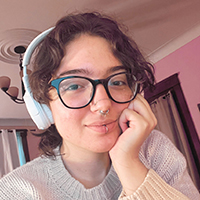 The Journalism and Communications program at Holland College has been instrumental in taking the first steps towards building the career I’ve always wanted for myself. The skills I learned and improved on over those two years have helped me land a summer job and internship with Veterans Affairs Canada, as well as my current internship with the Women’s Network PEI under the Digital Skills for Youth program.
The Journalism and Communications program at Holland College has been instrumental in taking the first steps towards building the career I’ve always wanted for myself. The skills I learned and improved on over those two years have helped me land a summer job and internship with Veterans Affairs Canada, as well as my current internship with the Women’s Network PEI under the Digital Skills for Youth program.
Learning about science and manipulation in the media built on the foundations of my critical thinking skills, allowing me to form educated opinions on issues that surround me. Our social media, photography and videography classes have taught me essential skills I’ve used during both my internships. My writing and storytelling abilities have helped me make informed decisions on the best ways to reach and communicate with different audiences.
Overall, the program taught me a broad variety of skills that have led me to be complimented on my work by my supervisors and co-workers despite being young and fresh out of college.
I’m very thankful to Holland College and to my Journalism and Communications instructors for helping me be able to start pursuing a career in advocacy and community work here in Epekwitk (PEI).
 I enrolled in the Journalism and Communications program with the intention of pursuing a career in the communications industry. I recognised the need to improve my writing skills to succeed, and having a journalism background is highly valued by employers in these fields. The course provided a well-rounded education, covering essential skills such as camera operation, writing, editing, and interviewing.
I enrolled in the Journalism and Communications program with the intention of pursuing a career in the communications industry. I recognised the need to improve my writing skills to succeed, and having a journalism background is highly valued by employers in these fields. The course provided a well-rounded education, covering essential skills such as camera operation, writing, editing, and interviewing.
Since graduating, I have been working in marketing and social media for Confederation Court Mall, The Holman Grand Hotel, and Redwater Rustic Grille. Despite being part of the same company, the communication styles of these businesses vary significantly in tone. The program prepared us for this by exposing us to different writing styles, including fiction, feature writing, and news reporting.
During my final year, I completed internships with the Canadian Association of Journalists, local events company VMG, and The Globe and Mail. VMG taught me the marketing skills I use in my current role. The contacts I made during this internship have become valuable collaborators whom I still meet at industry events. Networking is crucial, especially in Charlottetown's close-knit marketing industry, where you often see the same people at events and meetings. My experience with our in-class “streeters" assignments helped me develop the confidence to approach people and build these important connections.
My advice to future students is to seize every opportunity and connect with people in your professional network early. The course is demanding, but you learn so much. Even if you decide not to become a journalist, the skills and confidence gained will be beneficial in a wide range of career choices.
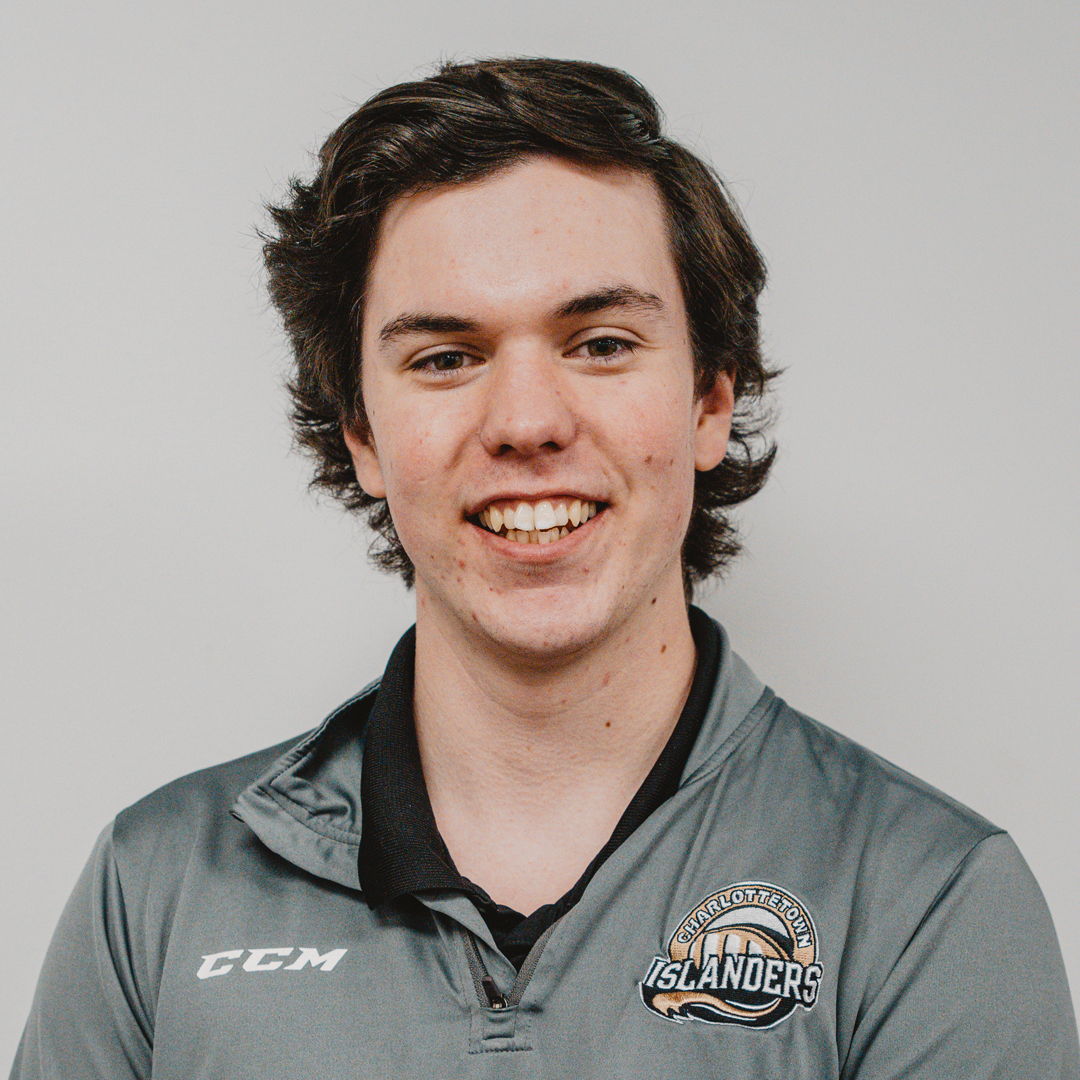 The Journalism & Communications program at Holland College was my most impactful post-secondary experience. I spent three years at UPEI before entering the program; I can confidently say the environment at Holland College was far better from a learning perspective.
The Journalism & Communications program at Holland College was my most impactful post-secondary experience. I spent three years at UPEI before entering the program; I can confidently say the environment at Holland College was far better from a learning perspective.
Students are put into a position to learn and grow their skills in a classroom environment that focuses on each individual's progress and success. The one-on-one sessions with the instructors that each student receives are a crucial part of developing one's toolset and knowledge of the field.
The journalism program is set up to help you prepare for the workforce and teach you the skills that you’ll need to excel in your career.
The curriculum forces you to branch out and explore what you will experience in the real world which is something you can’t learn in a lecture hall. No skills or information will be given to you that will not be useful as you go out on your own journey.
While there will be lots of work to be done, assignments to complete and stories to write, as well as what at the time will feel like endless editing and red pen marks; all of it is to better you as a student and professional.
Throughout my tenure in this program, I made friends I still talk to and had teachers who pushed me and made me a better writer. Through advice I was given and the ability to practice my craft, I am certain I was better prepared to enter the workforce and attack my future.
If I could leave whoever may be reading this with one piece of advice, it would be to work your fingers to the bone. The path to where I am now was far from clean and easy and my journey is far from over. Still, I wouldn’t have done it any other way looking back, the hard work and dedication led me here and I’m grateful for that. Keep your head down, embrace the grind even if it’s not always with a smile, and always try and find the joy in the ride.
 I wouldn’t be exaggerating to say the Holland College Journalism and Communications program literally changed my life and helped me develop skills beyond what I could have imagined.
I wouldn’t be exaggerating to say the Holland College Journalism and Communications program literally changed my life and helped me develop skills beyond what I could have imagined.
When I decided to enroll in the program in 2020, I was still new to Canada and P.E.I. I struggled with communication and didn’t know much about Canadian culture or life on the Island. The program helped me so much by offering a wide range of courses that dramatically improved my communication skills—from writing news stories to conducting effective interviews. It also deepened my understanding of the media landscape. I went from being terrified of striking up conversations with strangers to being able to connect with so many Prince Edward Islanders, finding meaningful story ideas and reporting on issues that matter to the community, creating real impact.
The skills I gained from the program have been invaluable in every role I’ve taken on since, from my time at CBC as an Associate Producer to working at The Guardian as a reporter. These skills led to a number of my achievements, including being part of an investigative project with CBC that was nominated for a regional RTDNA award, and in 2024, receiving an Atlantic Journalism Award. I’m proud to say these accomplishments are directly thanks to the solid foundation I received from the Holland College Journalism and Communications program.
That’s why whenever I meet someone considering a field of study, I always speak highly of the program. It’s definitely not easy—there are plenty of tough courses and challenges—but once you complete it, you're equipped with a broad set of skills that will propel your career forward.
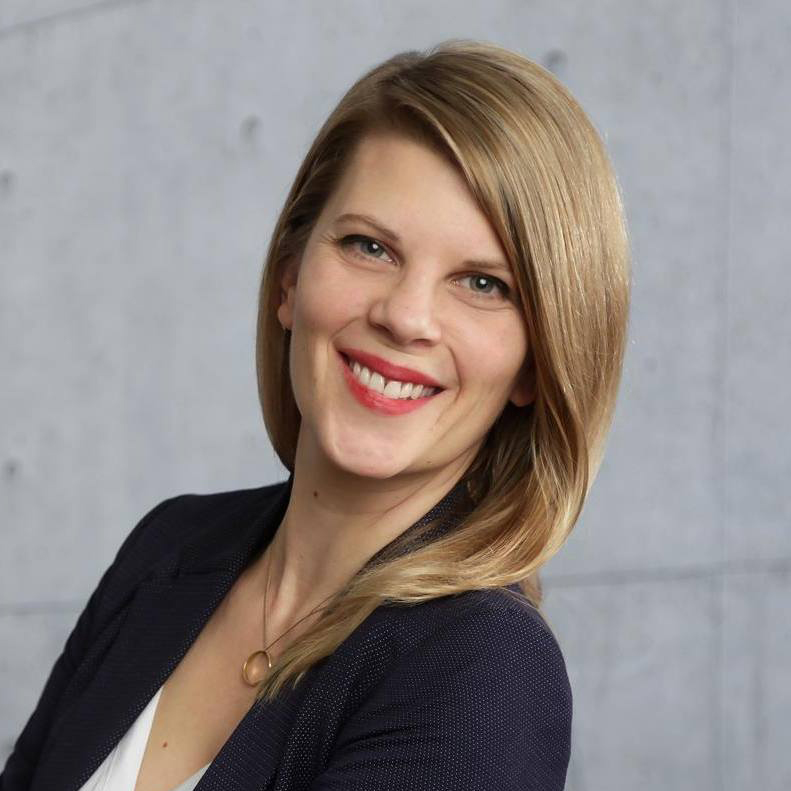 Holland College's Journalism and Communications program has been incredibly beneficial to my career. It enhanced my critical thinking abilities, refined my communication skills, and provided me with a comprehensive understanding of various social media platforms.
Holland College's Journalism and Communications program has been incredibly beneficial to my career. It enhanced my critical thinking abilities, refined my communication skills, and provided me with a comprehensive understanding of various social media platforms.
Whether developing compelling stories or conducting interviews, the expertise I gained has proven invaluable. I've learned how to connect with diverse audiences and work in a fast-paced environment. The program also taught me audio, video, and digital production techniques, giving me the versatility to work across different industries. The focus on accuracy and storytelling has helped me establish a strong foundation for building credibility and fostering professional relationships. These skills have opened valuable doors across many industries for me.
This foundation was particularly beneficial during my internship at CBC, where I applied my hands-on college training to gain practical industry experience. I developed strong research skills to produce well-crafted stories and honed my ability to create engaging video content. Additionally, my understanding of audience behaviour and cross-platform communication gave me a competitive advantage.
Ultimately, these experiences were pivotal in securing my current role as a Social Media Officer at Holland College. The combination of academic training and practical expertise provided me with the confidence and experience to effectively manage social media strategies, produce engaging content, and connect with diverse audiences.
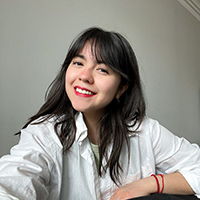 Holland College’s Journalism and Communications program was a great experience and has helped me in many aspects of my life. The program pushed me completely out of my comfort zone. As a reporter, it allowed me to learn how to tell stories while getting to know people from the community and developing skills like interviewing, writing, and storytelling. Learning about editing, photography, and video also helped me tell those stories in a more complete way.
Holland College’s Journalism and Communications program was a great experience and has helped me in many aspects of my life. The program pushed me completely out of my comfort zone. As a reporter, it allowed me to learn how to tell stories while getting to know people from the community and developing skills like interviewing, writing, and storytelling. Learning about editing, photography, and video also helped me tell those stories in a more complete way.
Practical activities such as recording audio in a sound booth, photographing things going on outside of the newsroom, speaking on camera, or classes like Ethics, Manipulation and Interviewing, helped me better understand how media works in the real world. All of the skills and theory I've learned have been seamlessly useful not only at my job but in my daily-life activities. The internship during the final semester was ideal, as it provided me with a real and practical introduction to a real work environment and helped me achieve my position as a Social Media Lead after graduating. It helped me realize what I’m passionate about and what I want to pursue as a career.
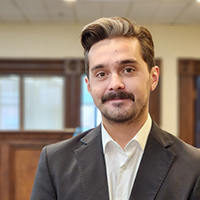 I will never be able to read bad writing again.
I will never be able to read bad writing again.
When I entered the Holland College Journalism and Communications program in 2020, I never believed that within a year I would have a full-time reporting job with my local newspaper. I came to the program simply to learn to write better. I got far more than I bargained for.
From engaging ethics discussions to on-the-job training opportunities with local media outlets, this program covers a wide range of information the modern reporter/communications officer must know. The instructors bring top-level experience to the table, with a combined 50+ years of experience in local reporting and communications between them.
On a personal level, this program gave me the confidence to fully express my voice as a storyteller, both on paper and visually. Whatever I find myself doing the rest of my life, I know I will use the skills I acquired during my time in this program. With my honorary red pen in hand, I can honestly say this program was one of the best decisions I ever made.
 When I chose to pursue journalism at Holland College, it was to learn how to properly structure stories for the purposes of one day writing narrative fiction. And while the program proved invaluable in that respect, what I didn’t expect was to fall in love with the craft and principles of journalism itself - of telling stories that aim to reveal, in some capacity or another, the truth as accurately as is possible.
When I chose to pursue journalism at Holland College, it was to learn how to properly structure stories for the purposes of one day writing narrative fiction. And while the program proved invaluable in that respect, what I didn’t expect was to fall in love with the craft and principles of journalism itself - of telling stories that aim to reveal, in some capacity or another, the truth as accurately as is possible.
The program broke down the practice and gave me a full toolbox of skills, and I left with a firm grasp on how to actually use them as they apply across print, broadcast and radio. And while I went on to work in various corners of Island news and media, I’m often surprised by how much the practice transfers into other fields and even my regular life. Like when I meet someone new, the best way to get to know them is to just start asking questions as if I’m the journalist and they’re an industry expert. Because everyone has a story.
I’d say the college environment specialized in providing us with this methodology, but the extensive history of journalism also offered plenty of case studies to help unravel its many ethics and nuances - which continues to affect how I engage with the world in general. So overall it was a thorough, well-rounded program that will help you to think more critically, and which could take you more places than just a newsroom. But to those who do stay in journalism, I doubt I’m the only one amongst them who looks back with pride to this program as the place that it all started.